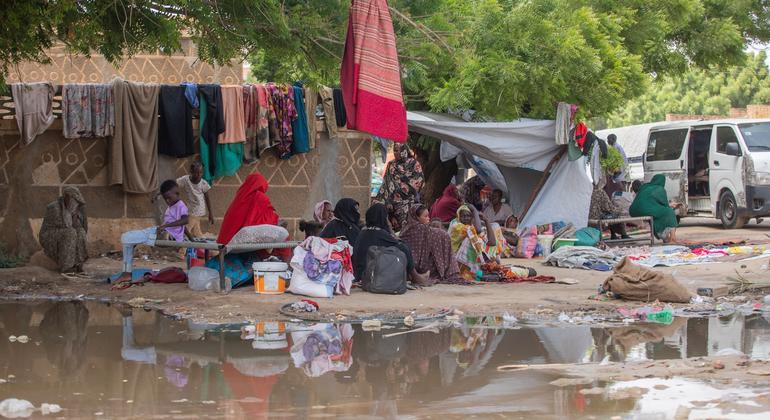Sure! Here’s the translation into American English:
—
By the end of 2024, the world is facing a concerning record of forced displacement, reaching the alarming figure of 123.2 million people forced to leave their homes, according to a recent report by the UN Refugee Agency (UNHCR). This increase has been driven by prolonged conflicts in various regions, with Sudan, Myanmar, and Ukraine standing out as the main crisis hotspots.
Of the total figure, 73.5 million are internally displaced persons, meaning they have not crossed international borders. On the other hand, 42.7 million have become refugees, primarily in low- and middle-income countries. Sudan has become the epicenter of this phenomenon, surpassing Syria with 14.3 million displaced people since the start of its civil war in April 2022. This displacement represents approximately one-third of the Sudanese population and marks the largest internal displacement crisis in history.
Despite the grave situation in Sudan, there have been some signs of improvement in other areas. Hopes for a return to Syria, encouraged by the overthrow of Bashar al-Assad’s regime in December 2023, have allowed 1.2 million internally displaced persons and 500,000 refugees to return home. However, this return is fraught with significant challenges that complicate the process.
The UN High Commissioner for Refugees, Filippo Grandi, has emphasized the “intense volatility” that characterizes international relations and the human suffering resulting from ongoing conflicts. Although facing a bleak landscape, the report highlights some achievements, including the permanent resettlement of 188,800 refugees in host countries, the highest number in four decades, and the return home of 9.8 million people in 2024, primarily in Afghanistan and Syria.
However, the return is not without its challenges. Many of those attempting to return, including Afghan and Haitian refugees, do so after being deported from their host countries. The report underscores that these returns must be voluntary, which implies a commitment to lasting peace and sustainable development to ensure the dignity and safety of returnees.
Despite the increase in the number of displaced persons, UNHCR funding levels have remained virtually stagnant. This lack of resources creates an unsustainable scenario that exacerbates the precarious living conditions of these vulnerable communities. In this critical context, it is urgent to prioritize the search for durable solutions and the promotion of peace to address the growing challenge of forced displacement.
Referrer: MiMub in Spanish











